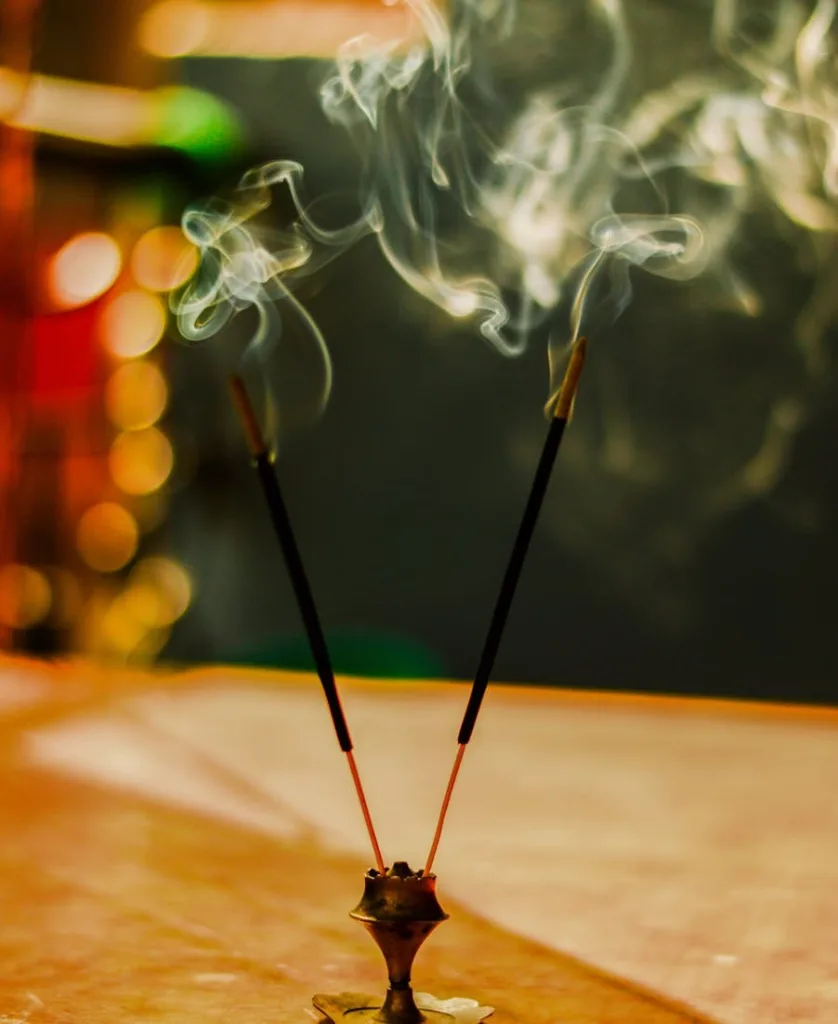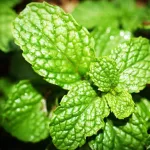Spiritual aromas have been a topic of intrigue and mysticism across various cultures and spiritual practices.
They encompass the belief that certain scents possess the unique ability to convey messages beyond the physical level, engaging the sense of smell as a means of receiving spiritual insight.
These scents are often regarded as signifiers of the presence of the divine, or conveyors of metaphysical energies.
Their significance is considerable, as they are believed to offer a form of communication that transcends the limitations of verbal and visual symbols.
In spiritual parlance, these olfactory experiences are not merely coincidences but are imbued with profound meanings.
When individuals encounter particular scents without a clear source, it may be interpreted as a sign or message.
For instance, the scent of roses might be related to the presence of a benevolent figure or an indication of love and protection, while the sharp scent of citrus may symbolize clarity and awakening.
Each aroma carries a variety of connotations, which can provide guidance, evoke memories, or signal the commencement or end of a spiritual occurrence.
Understanding the nuances of spiritual smells entails more than simply recognizing the scents—it is an invitation to a deeper comprehension of one’s journey and the subtle energies that navigate it.
By acknowledging the scent and reflecting on its possible meanings, individuals can glean insights that might guide their spiritual path or provide comfort in moments of uncertainty.
Understanding Spiritual Smells

The exploration of spiritual smells, often through the psychic ability known as clairalience, provides an avenue for connecting with the spiritual world.
Certain scents like rose, sage, and frankincense play pivotal roles in rituals and spiritual growth, facilitating a deeper sense of awareness during practices such as meditation.
Read too: Smelling Smoke Spiritual Meaning (Is It Good?)
The Concept of Clairalience
Clairalience, or clear smelling, is a psychic ability that enables an individual to detect scents without a physical source present.
This ability is more than a mere function of the physical senses; it’s a spiritual tool.
Individuals with clairalience may perceive the fragrance of rose as a sign of love and purity, while the smell of sage could be indicative of a cleansing process or protection.
Frankincense, with its long history in religious rituals, may be sensed to enhance spiritual connection and introspection.
Spiritual Significance of Scents
Scents carry a profound spiritual significance, deeply embedded in various religious traditions and personal spiritual practices. For instance:
- Rose: Symbolizes love, beauty, and aids in attracting positive energies.
- Sage: Used for purification, it is often involved in clearing negative energy.
- Frankincense: Enhances spiritual awareness and is conducive to meditation.
- Sandalwood: Promotes mental clarity and calmness, commonly employed in rituals to foster a sacred atmosphere.
Each scent is more than its aroma; it serves as a symbolic conduit to the spiritual world, potentially impacting spiritual journey and spiritual growth.
The use of these scents can be seen as a physical manifestation of the spiritual practice, where each holds a unique essence contributing to the overarching tapestry of spiritual experience.
Common Spiritual Smells and Their Meanings
Spiritual smells can be powerful indicators of various energies and messages from the divine or spiritual realm. They often signify love, healing, grounding, and sometimes warnings.
Floral Scents and Love
Rose: Often associated with love, beauty, and purity, the scent of roses is believed to signify the presence of divine love or an acknowledgment of loving energies. It is also connected to the divine feminine and spiritual awakening.
Jasmine: This sweet fragrance is said to represent love and prophetic dreams. Jasmine is often used to foster love and romance and may indicate a deep spiritual connection or an encouragement to pursue creative passions.
Woody Aromas and Grounding
Cedar: Cedar’s fresh, woody scent is widely believed to offer protection and grounding. It is commonly associated with strength and is used in cleansing rituals to promote a sense of security and stability.
Pine: The crisp scent of pine is another aroma that engenders grounding. It is thought to help focus one’s intention and invoke feelings of peace and grounding, especially during meditation.
Herbal Notes and Healing
Sage: Known for its cleansing properties, sage carries a herbal scent that signifies healing, purification, and the removal of negative energies. It is often burned in smudging ceremonies to cleanse a space or individual.
Eucalyptus: The sharp and refreshing scent of eucalyptus is associated with healing and rejuvenation. It might indicate an atmosphere ripe for healing or the need to clear mental fog and promote relaxation.
Pungent Smells and Warning
Sulfur: A sharp, often unpleasant smell akin to rotten eggs, sulfur is usually interpreted as a warning or sign of negative presence. It is a call to be vigilant and to cleanse the area or oneself from harmful influences.
Myrrh: While less pungent, myrrh carries a heavy, slightly bitter scent. Historically used for its protective qualities, it suggests the need for shielding and spiritual protection, often during times of meditation or spiritual work.
The Role of Smells in Spiritual Practices

Throughout history, fragrances have been integral to spiritual practices, facilitating a deep connection with the divine, enhancing prayer, and symbolizing purification.
They are especially prominent in religious ceremonies and acts of devotion across various faiths, from Christianity to Buddhism and Hinduism.
If you are enjoying reading this, you will definitely enjoy reading Exploring The Spiritual Meaning Behind Smelling Carnations
Incense in Religious Ceremonies
In spiritual traditions, the burning of incense is a sacred act. Frankincense and myrrh, both aromatic resins, have been used in Christian religious ceremonies for centuries, symbolizing prayer and the presence of the holy spirit respectively.
Buddhism also holds incense in high regard; it is burned during meditation to purify the surroundings, representing the impalpable qualities of Buddha.
Sage is often used in smudging rituals to cleanse a space of negative energies and to invite in positive intentions.
| Incense | Religion | Purpose |
|---|---|---|
| Sage | Various | Purification, clearing negativity |
| Frankincense | Christianity | Symbolize prayer, sanctity |
| Incense | Buddhism | Purify, aid in meditation |
Perfumes and Devotion
In Hindu rituals, perfumes and scented oils—like those derived from rose—are offered to deities during worship as an expression of devotion.
This act of anointing signifies respect and reverence, contributing to the multisensory experience of prayer and reflection.
Similarly, perfumed candles are commonly lit in Christian tradition, accompanying prayers and symbolizing the ascent of prayers to heaven.
The use of these scents facilitates a focused environment conducive to reflection and spiritual interaction.
- Rose: Symbolizes love, purity, and devotion in various religious contexts
- Candles: Used to illuminate, signify vigil, and represent prayers
By incorporating these fragrances into their practice, individuals across many traditions can deepen their spiritual experience during acts of devotion and religious ceremonies.
Interpreting Personal Spiritual Smells
Personal spiritual smells are often considered messages from the spiritual realm or indicators of the presence of entities beyond our physical perception.
These olfactory experiences might be linked to angels, reflect emotions, or serve as intuitive communication from a deceased loved one on one’s spiritual journey.
Deciphering Messages from the Spiritual Realm
When it comes to phantom smells, individuals may sense specific aromas that have no physical source in their environment.
These odors are often interpreted as messages from the spiritual realm, offering guidance, warning of danger, or indicating a spiritual connection.
To discern these messages, one must analyze the meaning and emotions associated with the smell.
- Floral scents, such as roses, might suggest the presence of angels or benign spirits offering comfort.
- The smell of smoke or burning could be a warning sign, prompting reflection on potential hazards or negative energy.
- Sweet fragrances, like vanilla, often denote positive energy and encourage one to follow their intuition on their spiritual journey.
Recognizing the Presence of a Deceased Loved One
Some individuals report a unique olfactory experience known as smelling a scent associated with a deceased loved one.
This phenomenon can serve as a form of communication and comfort, indicating that the spirit of the deceased is nearby.
- A familiar perfume or cologne might be detected, suggesting the spiritual presence of the loved one.
- The scent of tobacco or a particular recipe could evoke memories and emotions connected to that person.
It is through intuitive reflection that one may understand these personal spiritual smells as more than mere coincidences but rather as meaningful communication from beyond.
Before you leave, read Spiritual Meaning Of Smelling Eucalyptus (Symbolism)
Cultural Perspectives on Spiritual Smells

Spiritual scents are deeply entrenched in various cultures and traditions, holding significant meanings that transcend beyond the mere senses.
These aromas have been symbolically used for millennia to signal the divine, cleanse the spirit, and enhance religious rituals.
Biblical References to Sacred Aromas
In the Bible, specific scents are associated with sanctity and worship. Frankincense and myrrh are among the most notable, presented as gifts to the infant Jesus, indicating their high value and spiritual significance.
Frankincense, with its woody and earthy scent, is often associated with prayer and is used symbolically to represent the intention of prayers ascending to heaven.
The Bible frequently mentions burning incense as part of sacred offerings, symbolizing purification and holiness.
- Rose: Symbol of purity and is often linked with the Virgin Mary.
- Cinnamon: Associated with anointing oil, representing gladness and joy.
Scents in Eastern Spiritual Traditions
Smoke from incense is central to several Eastern spiritual traditions. Incense burning is a shared practice in Hinduism, Buddhism, and other faiths, serving as a bridge between the material and spiritual realms.
Hindus use a variety of fragrant substances during puja ceremonies, with scents like sandalwood believed to calm the mind and facilitate meditation.
Buddhism also places emphasis on scent, particularly in the form of smoke. The burning of incense in temples is an act of offering to the Buddha, and it’s thought to purify the surroundings, witnessing the impermanent nature of life.
- Hinduism: Incense is used in daily rituals to honor gods and uplift spiritual practice.
- Buddhism: Incense burning signifies impermanence and is an offering to the Buddha.








